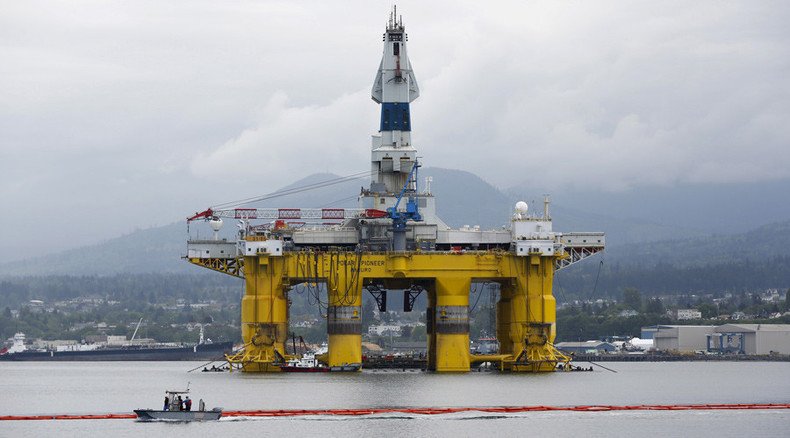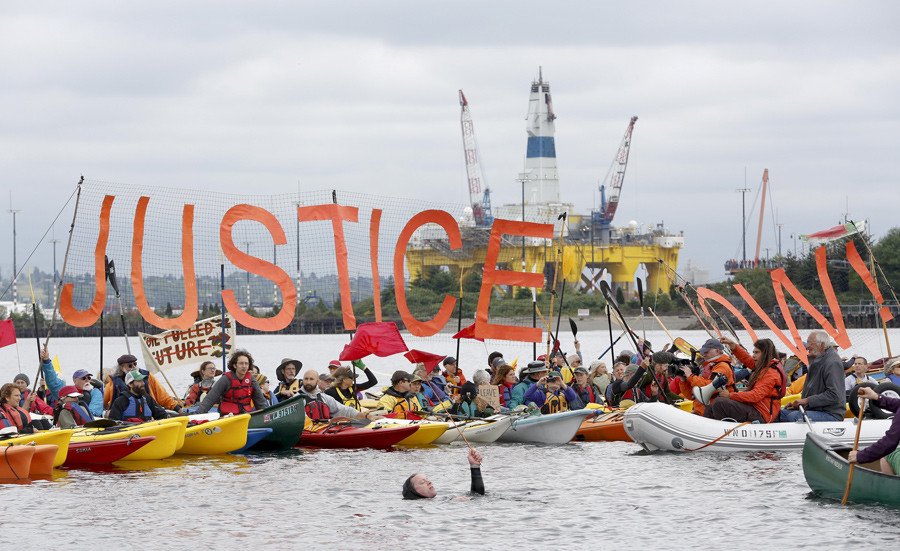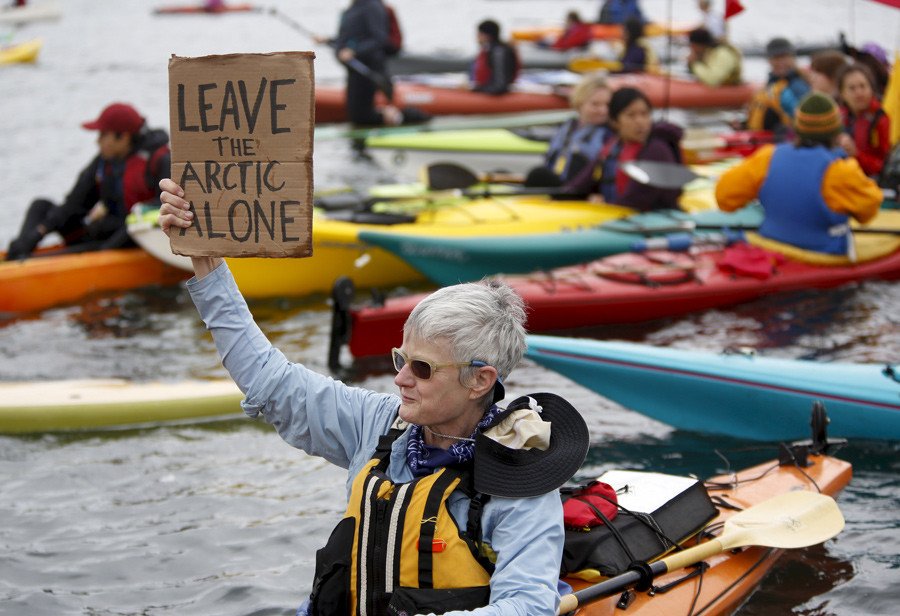White House green lights Shell drilling in Arctic

Royal Dutch Shell received the go-ahead from the US government to drill for oil in the Chukchi Sea off the coast of Alaska. Environmental groups are protesting the decision, warning of dangers to wildlife and climate.
Two permits issued on Wednesday by the US Department of the Interior clear the way for the multinational oil company to begin preliminary drilling. However, the department’s Bureau of Safety and Environmental Enforcement said Shell would need to request permission for deeper drilling, once it has a vessel capable of deploying a “capping stack,” a safety device for preventing oil spills.
#Obama Admin Grants #Shell Permits to #Drill in #Arctichttp://t.co/aKITfyTtLI@ecowatch#duplicity#fossilfuel#climate#consequences
— Not Warming, Dying (@ClimResJudicata) July 23, 2015"Without question, activities conducted offshore Alaska must be held to the highest safety, environmental protection and emergency response standards," said the bureau's director, Brian Salerno.
The US Geological Survey estimates the recoverable oil reserves in the Chukchi and Beaufort seas amount to 26 billion barrels. Oil deposit zones are about 8,000 feet (2.5 km) below the ocean bottom.
Currently, Shell is only allowed to drill “top-holes,” to a depth of 1300 feet (400 meters), and will need to file new paperwork once it has a ship capable of capping the well within 24 hours. Shell’s only vessel with that capability, the Finnish icebreaker ‘Fennica’, is currently limping to port for repairs after damaging its hull on a shoal earlier this month.
Environmentalist groups have condemned the government’s decision, citing climate change concerns and fears that Shell’s efforts could wreak havoc on the Arctic’s fragile environment worse than the 2010 BP oil spill in the Gulf of Mexico.

“Shell shouldn’t be drilling in the Arctic, and neither should anybody else,” said Franz Matzner of the National Resources Defense Council (NRDC). “President Obama's misguided decision to let Shell drill has lit the fuse on a disaster for our last pristine ocean and for our climate.”
“We are committed to growing the ‘Shell No’ movement at a record rate until President Obama cancels all drilling leases and protects the Arctic Ocean,” said Michael Brune of the Sierra Club, one of the environmental groups protesting against Shell’s oil fleet based in Seattle.
The Alaska Wilderness League joined the chorus of disapproval. “This decision puts the fate of the fragile Arctic Ocean, and our climate future, in the hands of Shell Oil," executive director Cindy Shogan said in a statement.
With the permit process now complete, drilling will begin as soon as the area is clear of sea ice, Shell spokeswoman Kelly op de Weegh told AP.

"We remain committed to operating in a safe, environmentally responsible manner and look forward to evaluating what could potentially become a national energy resource base," she said in an email.
Shell received the preliminary permissions in May, but was given a list of 18 conditions, including additional permits, establishing plans to contain any leaks, and staying at least four miles from walrus.
READ MORE: Off to Arctic: Shell drilling rig leaves Seattle amid protest
Anticipating the government’s decision, Shell’s drilling rig Polar Pioneer set out for the Arctic from Seattle last month. Protesters in kayaks picketed the rig, carrying “Shell No” signs and demanding “climate justice.”
Seattle Mayor Ed Murray has also opposed the company’s plans to base its Arctic drilling fleet in the city, saying the contract with the port ran afoul of the existing land-use permits.
“Things like oil trains and coal trains and oil-drilling rigs are the past,” Murray said at a fundraiser for an environmentalist group in May. “It’s time to focus on the economy of the future. Clean energy, electric cars and transit, green homes and an environmentally progressive business community.”












